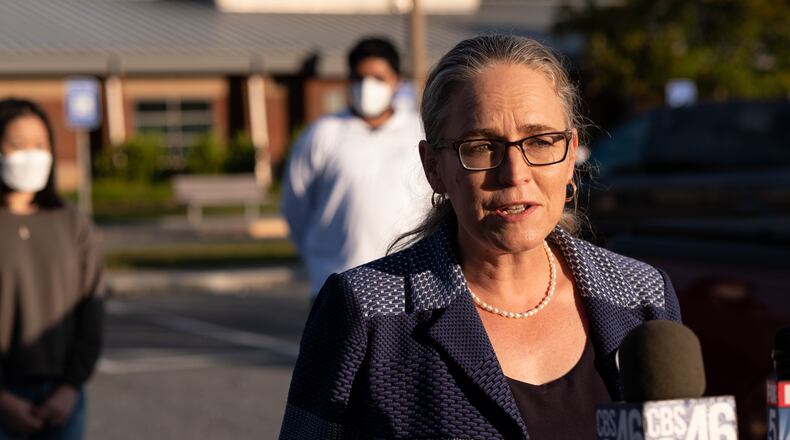A week after Democrats pushed a $1.9 trillion COVID-19 relief package through Congress without any support from Republicans, there were still some fleeting signs of bipartisanship on Capitol Hill this week about the virus outbreak.
On Tuesday, lawmakers in the House joined to overwhelmingly approve an extension of the popular Paycheck Protection Program, trying to give small business owners more time to get help from Uncle Sam to weather the virus.
“Now is not the time to stop fighting for the mom and pop stores,” said U.S. Rep. Carolyn Bourdeaux, D-Suwanee, who joined with members of both parties to sponsor the PPP change.
Georgia is no stranger to the emergency aid program, as the PPP has already provided more than 260,000 loans worth $19 billion. In the first two months of this year, Georgia businesses were approved for $4.3 billion in aid.
“The PPP loans have provided a lifeline,” Bourdeaux said on the House floor, arguing the program offers help to small businesses ”simply trying to survive an unprecedented health and economic crisis.”
With some business owners still looking for help from Uncle Sam, the bill backed by Bourdeaux would give them until May 31 to apply for federal aid, and give the feds until June 30 to hand out more assistance.
After Bourdeaux and other lawmakers wrapped up debate, the House moved on to a bipartisan bill dealing with child abuse, which would include new authority for grants to expand child abuse prevention services.
“The COVID-19 pandemic has increased the risk factors that lead to child abuse,” said U.S. Rep. Lucy McBath, D-Marietta, as she championed part of the bill to establish a national child abuse hotline, an idea pushed in concert with GOP U.S. Rep. Elise Stefanik of New York.
“Our nation’s children need us now more than ever,” McBath said during debate.
But while everyone was on the same page for those two bills, you didn’t have to look far to see the seeds of political battling in the background.
Instead of those two noncontroversial bills being quickly approved by voice vote — which is standard procedure in the House — there were GOP lawmakers asking for time-consuming roll call votes.
Leading the charge for those votes was U.S. Rep. Marjorie Taylor Greene, R-Rome, wearing her distinctive ”America First” mask on the House floor.
“By my action on the floor, all 435 members of Congress now have to vote on record,” Greene tweeted, defending her floor actions.
Instead of a quick voice vote, it took 49 minutes for the House to approve the PPP extension by 415-3.
Greene was one of the three Republicans voting “no” on the extra COVID-19 aid for small businesses in Georgia.
There still is bipartisanship in Congress. But maybe not for everyone.
Jamie Dupree has covered national politics and the Congress from Washington, D.C., since the Reagan administration. His column appears weekly in The Atlanta Journal-Constitution. For more, check out his Capitol Hill newsletter at http://jamiedupree.substack.com
About the Author
Keep Reading
The Latest
Featured



